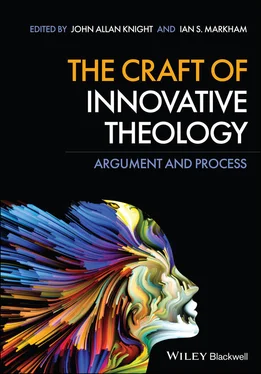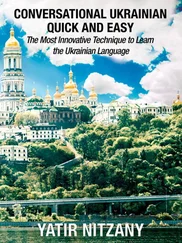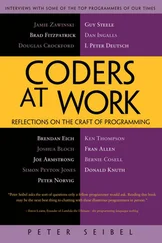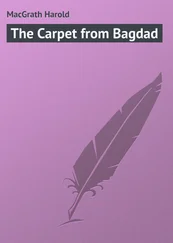Tinu Ruparell,Associate Professor of Indian and Comparative Philosophy, University of Calgary
Christopher Southgate,Professor of Christian Theodicy, University of Exeter
Leigh Vicens,Associate Professor of Philosophy, Augustana University
Keith Ward,Regius Professor of Divinity Emeritus, University of Oxford
Most professors are better at imparting content than they are at imparting research skills. Professors are good at explaining the complexities of Aquinas or the details of Kant’s categorical imperative. But they are less good at helping a student learn how to think about a new way to interpret this thinker or defend an unfashionable position. Beyond the basics, such as thinking critically and avoiding plagiarism, many professors usually don’t teach a student how to move the discipline on to a new set of questions or a new approach or a potential solution to an old problem. For the Masters’ student trying to write a thesis or a student starting on a Ph.D. dissertation, we have an old‐fashioned system of “trial and error” – you try, the professor tells you that it is wrong, and you try again. There is a need for a book that explains how to write in such a way that you advance a discipline; there is a need for a book that explains why this article is great and that it should be a model of great research writing.
This book sets out to solve this problem. We do so in two ways. First, toward the end of this introduction we set out what we take to be the basics of writing publishable research essays. Second, we offer sixteen model “research” articles. Surrounding each article is an apparatus that explains precisely why this is a model research article. We make explicit what is often implicit. We explain about the importance of the signpost, the accurate representation of positions you do not hold, the way in which objections are anticipated, why this footnote is important, and how a good piece of writing ultimately drags the reader to feel that this argument might be right even if his or her instinct is to find the argument mistaken.
Therefore, the first purpose of this book is to teach the art of writing good, creative, research‐orientated theology. Our target readers are all those trying to write a Masters’ thesis or beginning work on their doctorate. But the book is also intended to provide the basis of an “innovative theology” course. This is a course that takes a group of students through a set of issues, loosely clustered around the key themes in systematic theology, that are models of good theological writing with theses that are provocative. A professor can select certain chapters or simply work through each chapter and in so doing teach both content and the art of research writing.
We did try to make sure that the book touches a range of different approaches to the writing of innovative theology. So Pamela Jones, primarily, employs a historical approach to the theme of race in the Southern Baptist Conference. Keith Ward attends closely to the biblical text in his discussion of eschatology. Andrei Buckareff brings the rigors of analytical philosophy to the issue of hell. In addition, we were interested in writing that crosses disciplines. As a result, the engagement of science is prominent with articles on anthropology (Celia Deane‐Drummond), biological evolution (Christopher Southgate), and artificial intelligence or AI (Ian Markham). We wanted articles that connected with the dilemmas of living. Trevor Bechtel explores the issues around the eating of animals, while Kathryn Blanchard takes COVID‐19 as a case study in business ethics. We wanted some essays that exhibited an interfaith sensitivity. Therefore, Tinu Ruparell writes about religious pluralism and Cass Fisher reflects on the whole concept of Jewish theology. We wanted some texts that are very accessible – Thomas Oord eases the reader into a controversial thesis in a very gentle and readable way – and we wanted other articles to illustrate what participation in a highly technical discussion, where the scholar is completely on top of the literature and the current conversation – Leigh Vicens and John Knight met this goal perfectly. We wanted different writing styles, from those who love stories and illustrations – Martyn Percy and Trevor Bechtel – to those who appeal primarily to precise logical distinctions – Andrei Buckareff. For the teacher and the reader working through this book, the result is that you are introduced to a vast spectrum of approaches. But they all share the virtue of being great examples of provocative, innovative research writing.
There are two ways that this book can be used. First, a professor can start at the beginning and treat the book as a textbook for “creative theology.” Second, a professor can move around the book focusing on those chapters that are easier for a beginner to access first and moving on to those chapters that are more advanced. This works for a “research methods” course. Now there are many “research methods” books on the market, but none do the work of providing research method techniques for the student who is going to start writing at the level of a Ph.D. or a research Master’s Degree. This text teaches research writing at the highest academic level. If used for a research methods course, then the result is that the student at the end of the course will have a real sense of the different types of research levels and different types of research writing.
We deliberately wanted a book that embraced a full spectrum of research writing, from the very accessible to the very difficult. To give the reader a sense of the level, each chapter has a ranking. Level 1 means that the article is accessible and teaches basic research skills. Level 2 means that the article has certain concepts that will require explanation, but a good student can grasp the issues. Level 3 means that the article assumes some knowledge of the field and, without such literacy, the argument will be difficult to grasp. One assumption we are making here is that reading articles that are technically beyond the reader actually helps the reader to grow. With the help of the glossary (all words in bold in the text are explained in the glossary at the end of the book) and with the sheer discipline of reading to the end, the reader will learn how to read at such a technical level. Level 4 means that there is a level of technical understanding and background knowledge that is essential for understanding the article. In the end, research articles are an act of participation in a pre‐existing conversation. To have credibility, one must know the existing participants in the conversation. The essays included in this book exhibit this kind of credibility and exemplify the ultimate goal of great innovative academic writing.
We have four articles at each ranking. At the first research level, Ian Markham offers an essay in Christology that argues that Jesus (the first‐century Jewish male) could have been Eternal Word made flesh in a different human form; he takes as his case study a person with Down’s Syndrome and argues that the Eternal Wisdom could have been made manifest in such a life. Also at this level, there is Pamela Jones offering a historical survey of the Southern Baptist Convention (SBC) and its journey to overcome the stigma of racism; she suggests that shifting attitudes in the SBC are partly linked to declining membership. Ian Markham has a second article at this level, in which he explores AI. He argues that it is possible that the church might have to face the emergence of “self‐conscious” AI entities that then should be granted human rights. And finally Thomas Oord’s chapter “Rentless Love and the Afterlife” argues that God would not compel a person to be either in heaven or hell. God’s character is unchangeable and that character does not compel.
Читать дальше











